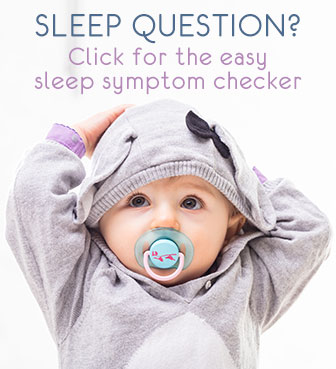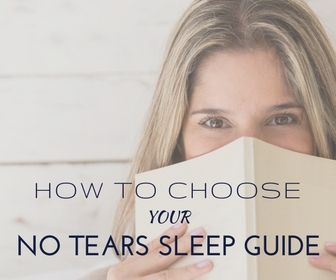Sleep Apnea In Infants: Risks, Symptoms and Treatments
Author Name: Heidi Holvoet, PhD
Is it normal when baby
snores or stops breathing for a while when
asleep? Sleep
apnea in infants can be serious, even fatal: we must all
know the risks,
recognize the
symptoms and find the right treatments.
Central
sleep
apnea (breathing pauses due to brain signal failure) is the
most common type in infants below 1 year old. When baby
is under 6 months old, part of her
normal
breathing
pattern
is to
pause
breathing
from time to time. Up to 15-20 seconds is
said to be normal.
When your baby stops breathing for 20 seconds or
more it is time for action: consult your doctor. Other
symptoms and signs
include gasping for breath after the pause and
snoring. Some babies will turn blue-ish.
On the one hand, it is good to know that there is no need to worry when
your baby stops breathing for a short while.
But on the other hand,
there is the risk of leaving true sleep apnea in
babies undiagnosed all too often.
Who is at Risk?
All babies can be affected. However, there is an increased risk if your baby:
- is premature
- has Down syndrome
- is overweight
- has a birth defect
- has any condition that disturbs breathing (airway blockage, enlarged tonsils or adenoids, ...)
- has reflux (gastrointestinal reflux)
Can sleep apnea cause death?
When infants stop breathing while asleep, the amount of oxygen in her
blood goes down. Also the heart rate can drop dramatically. All depends
on how the body reacts
to a breathing pause, and how she recovers from it.
In bad cases, an Apparent Life Threatening Event (ALTE) may occur. This
is when an affected baby survives a serious breathing pause.
After an ALTE of this kind, a monitor is usually prescribed to help
prevent future life threatening events.
The decreased oxygen levels and heart rate may also cause long term
problems.
Although some infants who suffered from
Sudden
Infant Death Syndrome
(SIDS) had previously suffered from nightly apnea, no definite proof of a link between the two has been shown
[1]
.
Diagnosis of sleep apnea in infants
When you suspect that your baby may serious and too long breathing pauses, your doctor will do a
general physical examination. He will check heart rate and breathing
and also measure the amount of oxygen in baby's blood.
Then ideally a
pediatric
sleep apnea specialist
, in a dedicated pediatric center, will
suggest taking polysomnograms, either in the sleep lab or at home.
Overnight, a polysomnography monitors sounds (like snoring and gasping
for breath) but
also breathing, brain waves, muscle tension and oxygen levels.
Advised treatment
Monitoring
is the most commonly prescribed treatment for infants. A dedicated
monitor
then records respiration rate and heart rate and warns you when dangerous
levels are reached.
In some cases,
medication
is suggested to avoid the brain signal
failures that cause the apnea breathing pauses.
Further details on the
treatment and solutions
page.
Sleep Apnea
Worried? Questions? Ask me
Article Author: Heidi Holvoet, PhD - Founder, senior sleep consultant
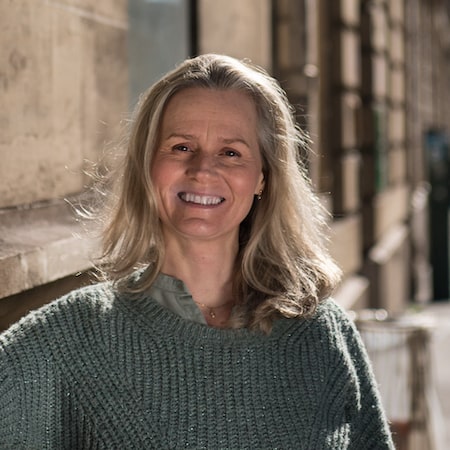
Heidi Holvoet, PhD, is the founder of the Baby Sleep Advice website and movement, an award-winning author, baby & toddler sleep consultant with 15+ years experience as well as a certified lactation counselor.
Over the years, Heidi has received several awards inluding a Mom's Choice Award (MCA) and National Parenting Awards (NAPPA) for her Baby Sleep Advice website, programs and books. Also, Baby Sleep Advice was awarded "Most Trusted Infant's Sleep Solutions Company 2023" in the Benelux Enterprise Awards 2023.
Heidi continually conducts personal research and participates in continued education and in that way stays up to date with current scientific and pyschosocial infant care.
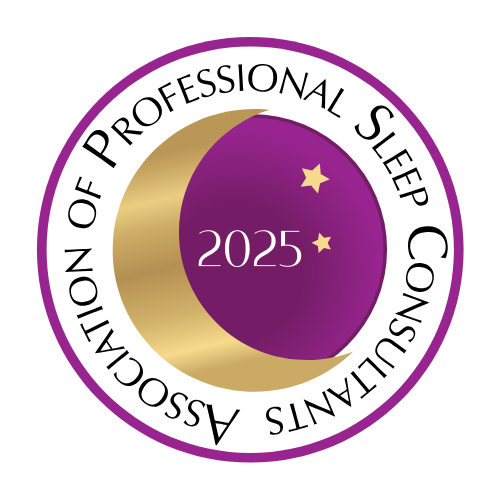
She is also a member of the Association of Professional Sleep Consultants of which she was one of the earliest contributors. She obtained her PhD degree in physics at the University of Ghent in Belgium.
Heidi is passionate about helping babies and their parents sleep more and better, with her trademark approach that has been proven and praised time and again by parents worldwide to be effective and truly no-tears. Respect for you as a parent and your baby, is at the heart of Heidi's warm and kind support. Her approach always keeps in mind a baby's needs and abilities at any given age, is based on pediatric science and the most up to date knowledge in infant care and sleep science.
As well as the award-winning baby sleep programs, Heidi offers popular 1:1 consults and easy-access 30-minute SOS Sleep sessions.
Back to the
Sleep disorder overview
Resources

Baby waking every hour?
by Heidi Holvoet, PhD
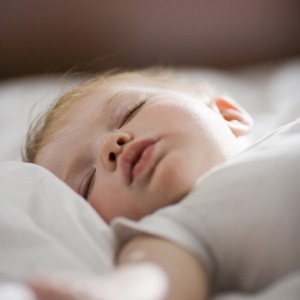
Sleep schedules by age
by Heidi Holvoet, PhD

Separation Anxiety
by Heidi Holvoet, PhD

Crib safety guidelines
by Heidi Holvoet, PhD

Why does my baby wake up every hour?
by Heidi Holvoet, PhD

